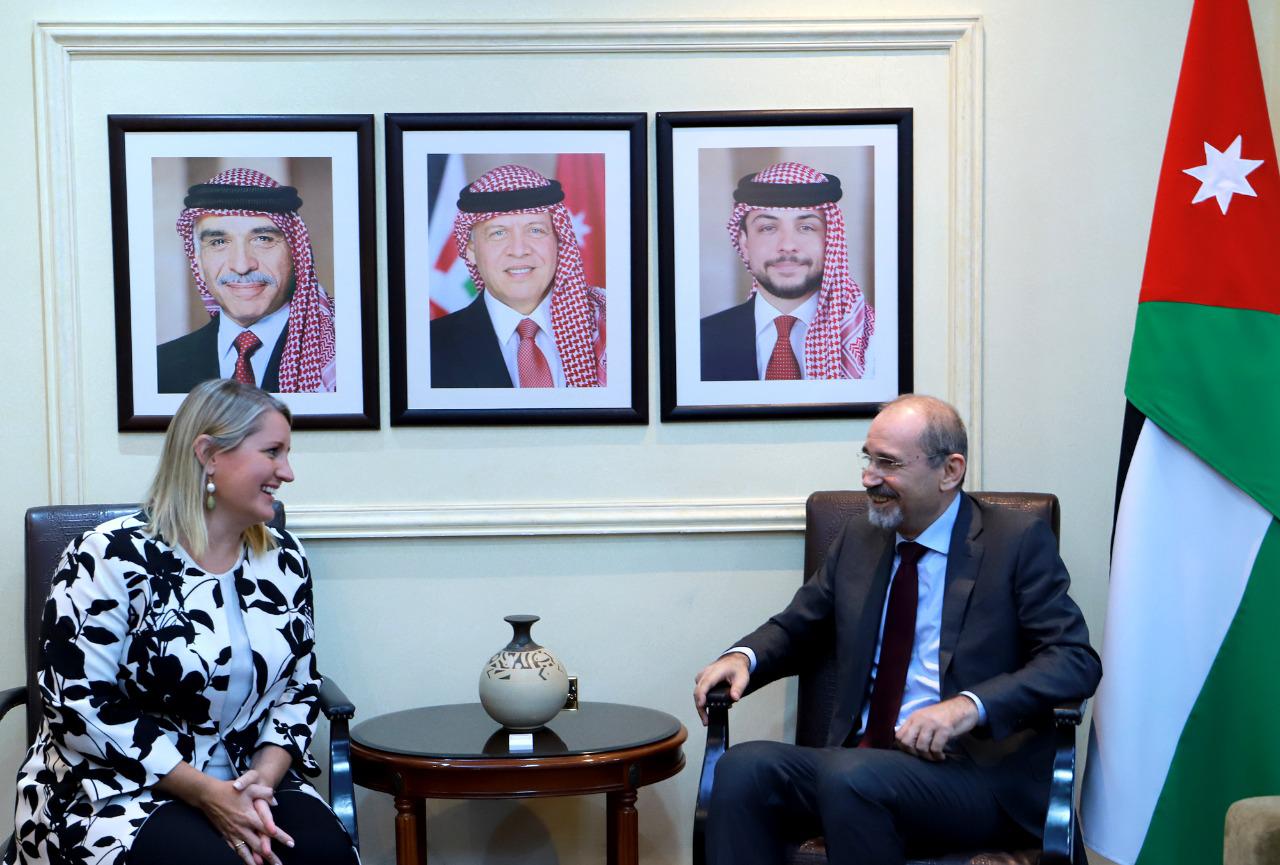Senior Public Diplomacy and Public Affairs Officer Elizabeth Allen made a visit to the Middle East, from 19 to 26 August, during which she visited Jordan, Lebanon, the Palestinian territories and Israel. According to the media statement by the US Department of State on August 19th , this Middle East tour “underscores the United States’ strategic commitment to people-to-people diplomacy, which brings people together beyond the confines of government to address shared challenges and advance peace and prosperity worldwide.” The visit is aimed at strengthening and expanding relations between the people of the United States and the region’s public and improving US understanding of public opinion in other countries.
Allen, who took office last April 4, has more than 15 years of experience in strategic communications and public affairs. Her visit comes at a time when the US’s public image is deteriorating in the face of growing support for its competitors, particularly Russia and China. The Arab Barometer survey issued last July showed declining support for Washington in the Middle East and North Africa, as opposed to increasing support for China. In only four out of nine countries surveyed, half or more had a positive view of the US including 69% in Morocco, 57% in Sudan and about half in Jordan (51%) and Mauritania (50%). For the remaining countries, 42% held a positive view of the US in Lebanon, 37% in Libya, 35% in Iraq, 33% in Tunisia, and 15% in the Palestinian territories.
The U.S. State Department’s statement on Allen’s visit indicates a focus on strengthening US partnerships with Arab countries in the education and health sectors. It noted interest in meeting with entrepreneurs to highlight the US’s long-standing commitment to enhancing economic opportunities and enabling US-funded academic exchange programs in support of the region’s youth participation in science, technology, engineering and math projects, as well as learning English, and exploring opportunities to study in the United States.
While the US appears to be disengaging from the crises and conflicts of the Middle East, it is undertaking some steps to build closer ties with the region’s public, these include:
Increased humanitarian assistance to Palestinians: The policies of President Joe Biden regarding Palestinian issues have not been essentially different than those of the Trump Administration. However, there has been an increase in US assistance to improve the Palestinian people’s living and health conditions. During his first visit to the region – July 13 to 16- President Biden announced a USD 316 million package of financial assistance to Palestinians. This included USD 200 million in additional support for UNRWA, and USD 100 million for the East Jerusalem hospital network that includes six Palestinian hospitals serving 50,000 patients annually. The hospitals received, on the 27th of the same month, the first payment, estimated at USD 14.5 million.
Moreover, the US Department of State revealed last March that the Biden Administration had provided more than half a billion dollars in assistance to Palestinians since April 2021. This included more than USD 417 million in humanitarian assistance to Palestine refugees through UNRWA and USD 75 million through USAID.
Assistance during the Coronavirus pandemic: According to the US State Department, the Biden Administration has provided USD 20.5 million to help the Palestinian Authority cope with the spread of the coronavirus in the Gaza Strip. The US also assisted Lebanon by donating 613,000 dosages of the Johnson & Johnson and Moderna vaccines in two batches, in addition to providing USD 55 million to help the most vulnerable cope with the fallout from the pandemic. This was part of USD 372 million in humanitarian assistance to Lebanon during the 2021 fiscal year.
Support for food security: The issue of Arab food security has become increasingly important as a result of the war in Ukraine. The US Administration announced USD 15 million in humanitarian assistance to support the 210,000 food-insecure Palestinians. According to a statement posted by the US Embassy in Lebanon on 16 August, USAID confirmed that it would provide USD 29.5 million to Lebanon, including USD 15 million in humanitarian assistance, and USD 14.5 million to provide economic support to groups especially vulnerable to Lebanon’s growing food insecurity.
Economic and social empowerment of women: Last December, the US Embassy in Lebanon launched the “Digital Mothers” Programme, which provides 68 mothers with school-age children with basic English language skills, and digital and computer literacy to support their children’s education effectively. In July of this year, the US Embassy in Cairo announced that the US government will invest USD 39 million in the Economic and Social Empowerment Programme for Women in Egypt. This aims to provide 200,000 women across seven governorates with increased employment opportunities, and improve their access to digital financial services, health and psychological support, and legal services.
Promoting opportunities for young people and entrepreneurs: The US launched the “Pop-Up Spaces” program last October, and the American Cultural Forum in Lebanon last November, as part of an initiative to empower Lebanon’s youth, women and professionals through capacity-building, cultural programmes and encouraging entrepreneurship. The initiative is particularly directed at strengthening northern Lebanon’s economically and providing support to those in need.
Clearing landmines in Libya: The increasing number of deaths and casualties caused by mines and other explosive ordnance represent a threat to civilian safety and livelihood in Libya. According to the US Embassy in Libya, the US is currently providing funding for three organizations working to remove mines all across Libya. The US is also sponsoring a campaign to raise awareness regarding the risks of explosive ordnances, which aims to reach ten thousand Libyan civilians at risk.
English learning programs: Most US embassies in the Middle East have initiated English teaching programs. In Algeria for example, the “Link Project” was launched, to enhance the linguistic skills of all Algerians. The program was a product of the fifth strategic dialogue between the US and Algeria held last March. The US Embassy in Algiers also provides scholarships to around 200 Algerian students from low income families. Additionally, Algeria and the US have developed a three-year partnership between the Algerian Ministry of Higher Education and Scientific Research and Columbia University in New York to promote English language instruction in all Algerian universities.
Great power rivalry in the Middle East has extended to a competition over winning “hearts and minds”. China in particular has devoted efforts and funds to spreading its language and understanding of its culture, in order to forge stronger ties with the peoples of the region. As public opinion polls reveal declining approval of the US among these populations, the US will be obliged to make a larger investment in public diplomacy if it wishes to head off the growing popularity of both China and Russia in the Arab World.


